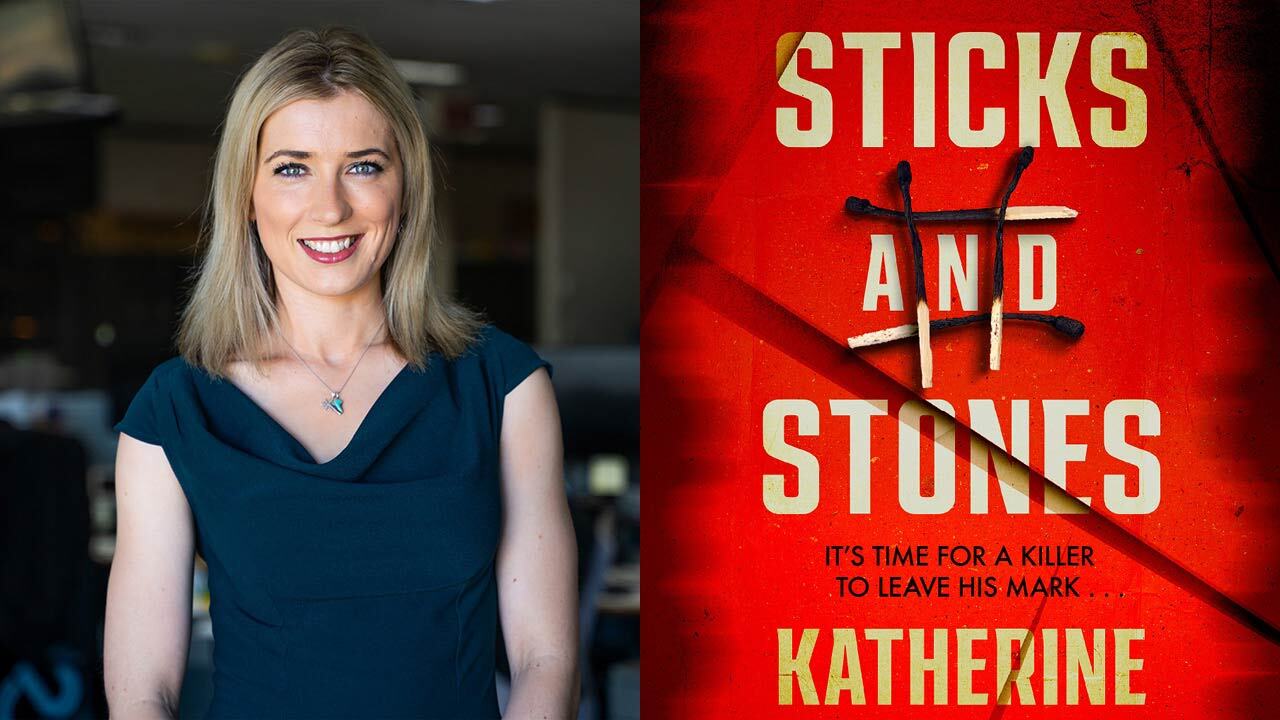5 minutes with author Katherine Firkin

In 5 minutes with author, Over60 asks book writers about their literary habits and preferences. Next in this series is Katherine Firkin, a writer and TV news journalist based in New York, US. Having worked for over a decade in journalism – with roles at the Herald Sun, 7 News, 3AW Radio, Nine’s Today show and Network Ten – Firkin has now jumped into publishing with her debut novel Sticks and Stones.
Over60 talked with Firkin about creating backstories, Andrew Sean Greer, and how her journalism career influenced her crime fiction writing.
Over60: What is your best writing tip? Alternatively, what is the worst writing advice you’ve ever received?
Katherine Firkin: There’s a quote by American author Libba Bray, which I have as the screen saver on my laptop: “Write like it matters, and it will.”
This concept kept me on track as I worked through the many drafts of my debut novel Sticks and Stones, as it reminded me to always give 100 per cent to my writing. There are times – particularly at the start of a novel – when the process of creating an entire manuscript can feel utterly overwhelming. But if you keep turning up, fully committed to whatever it is you are trying to create, you can have faith that eventually the writing will take shape.
What was the last book that made you laugh?
I really enjoyed Less, by Andrew Sean Greer. It’s a satirical novel that follows a second-tier author on a literary tour around the world. The writing is fabulous, fast and witty, and the flawed protagonist made me simultaneously cringe and laugh.
How has your experience as a crime reporter influenced your fiction writing?
There’s no doubt my career as a reporter has influenced my writing. One of the unique aspects of the job is that you are constantly on the road, visiting new places and meeting people from all walks of life – it gives you an incredible insight into the lives of those that perhaps you may not socialise with in normal circumstances.
You also tend to see people at their absolute best, or in their most vulnerable moments. For crime or court reporters, it tends to be more of the latter. I’ve sat across from a mother who’d lost her son only hours earlier, I’ve watched parents identify their deceased son after he was struck by a train, I’ve sat in funerals of murder victims, I’ve had people beg for help in finding lost relatives… These are things that I don’t take lightly, and they certainly stay with me as I develop my stories.
Which comes first, character or plot?
With Sticks and Stones, I had a very strong sense of the opening scene and the central crime that was going to be committed. From there I spent a huge amount of time developing my characters, writing their backstories, and just generally creating their lives in my head. I don’t like to start writing or even consider an overarching plot until I know who I have in the book. And I’m not a planner – once I have a general sense of what I want to happen I start writing and let the characters dictate how things play out.
What does your writing routine look like?
Being a reporter is not a 9-to-5 job, so I don’t have a set routine with my writing as far as hours or days are concerned. However, I’m definitely a morning person and I try to be up by 5am every day, so I can get an hour or two of writing in before my reporting shift begins. On days off I can get as much as six hours of solid writing done, but on most days, I tend to average two to three focused hours.
Based on your experience, what is the most common misconception readers get from crime novels?
There seems to be a misconception that writing crime is easy, because the language tends to be simpler than, say, historical fiction. While it’s true that no one reading my book is going to need to reach for a thesaurus, I’m not convinced it would have been any easier if I’d chosen to tackle any other genre. Every style has its challenges, and when you write crime you have to pay particular attention to pacing and timelines.
What trope in thriller grinds your gears?
I’m not too worried by tropes in thrillers, because I truly believe that any concept can be successful if it’s executed well. Having said that, I made a conscious decision not to have a journalist running around solving crimes – I’m yet to meet a reporter who has the time, desire, or skills to play detective on their days off! I also avoided giving my lead detective Emmett Corban a particular ‘past’ or ‘dark secret’ that he needs to overcome.
Which author, deceased or living, would you most like to have dinner with?
I’m going to go old school here and choose two women who influenced my childhood enormously: Agatha Christie and Enid Blyton.
